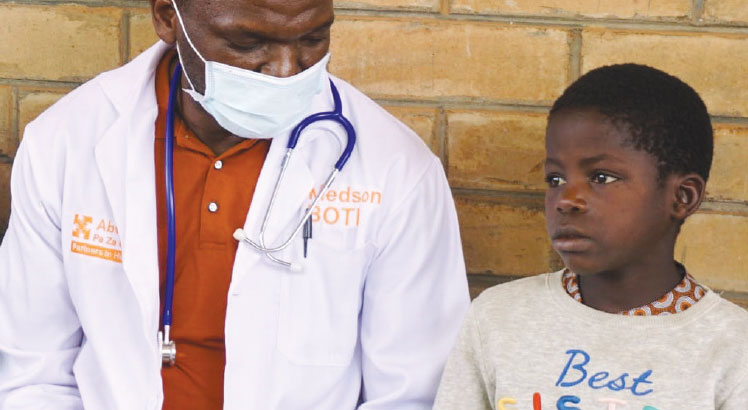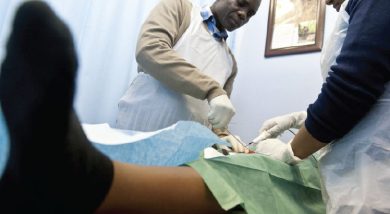Neno hospital intensifies chidlren’s NCDs screening
Half a decade ago, weight loss, excessive thirst and tiredness completely disrupted Chifundo Joseph’s life at a tender age.
“At five, I could not play with my friends or match their energy. I easily got tired and excessively hungry. I was also experiencing loss of appetite. I felt isolated,” he explains.
Days turned into months and the situation did not improve.
One day, his parents left Gonthi Village in Traditional Authority Mlauli for Neno District Hospital, a journey that would become a turning point in Chifundo’s life.

Little Chifundo underwent mandatory screening of non-communicable diseases (NCDs) available at the hilly district’s main hospital and he was diagnosed with type one diabetes.
District medical officer Dr Enock Jambo says better screening services at the hospital have immensely improved the detection and treatment of NCDs.
He says: “About 40 to 50 percent of all patients screened have a non-communicable disease, but the common NCDs in children registered here are diabetes, sickle cell anemia, iron deficiency anaemia, obesity and asthma.
“The earlier the diagnosis, the better. However there is a huge knowledge gap that needs to be addressed in communities. Because of this lack of knowledge, there are numerous myths, misinformation and misconceptions associated with NCDs.”
Since he was diagnosed, Chifundo takes two daily insulin injections administered by his brother, Samuel Joseph, 22.
Once every month, Samuel takes his brother to the hospital for check-ups and replenishment of insulin doses.
“When they give us insulin, we store it safe using homemade cold storage solutions in the village. We keep the dosages in a clay pot filled with water and place it on sand in the house to keep it within the recommended temperature,” he explains.
Samuel is excited that Chifundo’s health has improved tremendously since he started getting insulin.
“He is active and plays soccer with his peers both at home and at school,” he says.
Health workers from the district hospital and Partners In Health (PIH) also make home visit to monitor Chifundo’s health.
Once known as juvenile diabetes or insulin-dependent diabetes, Type One is a chronic disorder where one’s pancreas does not produce enough insulin, which leads to high blood sugar.
Chifundo, a Standard Two boy at Nkomaliwiro Primary School, cherishes the support he gets from his teachers as they know his condition.
“I take my recommended foods at school at any time I feel strange signs. Teachers and my classmates are supportive. I don’t feel left out, but motivated to go to school,” said a smiling, soft spoken Chifundo.
The NCDs screening facility is currently being trialled by Ministry of Health and Partners in Health (PIH) at Neno and Mangochi District Hospitals with funding from Eli Lilly pharmaceutical company, through Unicef Malawi.
In October this year, a delegation from the American pharmaceutical firm visited Neno and Mangochi District Hospitals to appreciate the impact of their work on NCDs screening, treatment and monitoring.
The delegation commended the health care workers’ commitment and contributions, especially monitoring NCDs patients in communities.
Said Eli Lilly assistant vice-president John Steele: “It was inspiring to see our joint vision coming to life in Malawi. “We met heroic health care providers and partners who are managing and standing up the NCDs clinics and the community health networks.”
The delegation also met several children with life-threatening NCDs, who are benefitting from the programme.
“As our work is still in its infancy, it was heartening to know how many more children and adults will benefit as well in Malawi. We look forward to advancing our common work together, I am convinced our work will also help spur the global community to greater focus on NCDs as well,” Steele stated.
In February this year, Eli Lilly and Unicef announced a new collaboration to help improve health outcomes for 10 million children and adolescents living with chronic NCDs until 2025.
The company committed $ 14.4 million in support of the life-saving work to address NCDs risk factors, strengthen health systems and enhance healthcare workers’ capacity to care for patients in Malawi, Zimbabwe, Nepal, the Philippines and Bangladesh.





